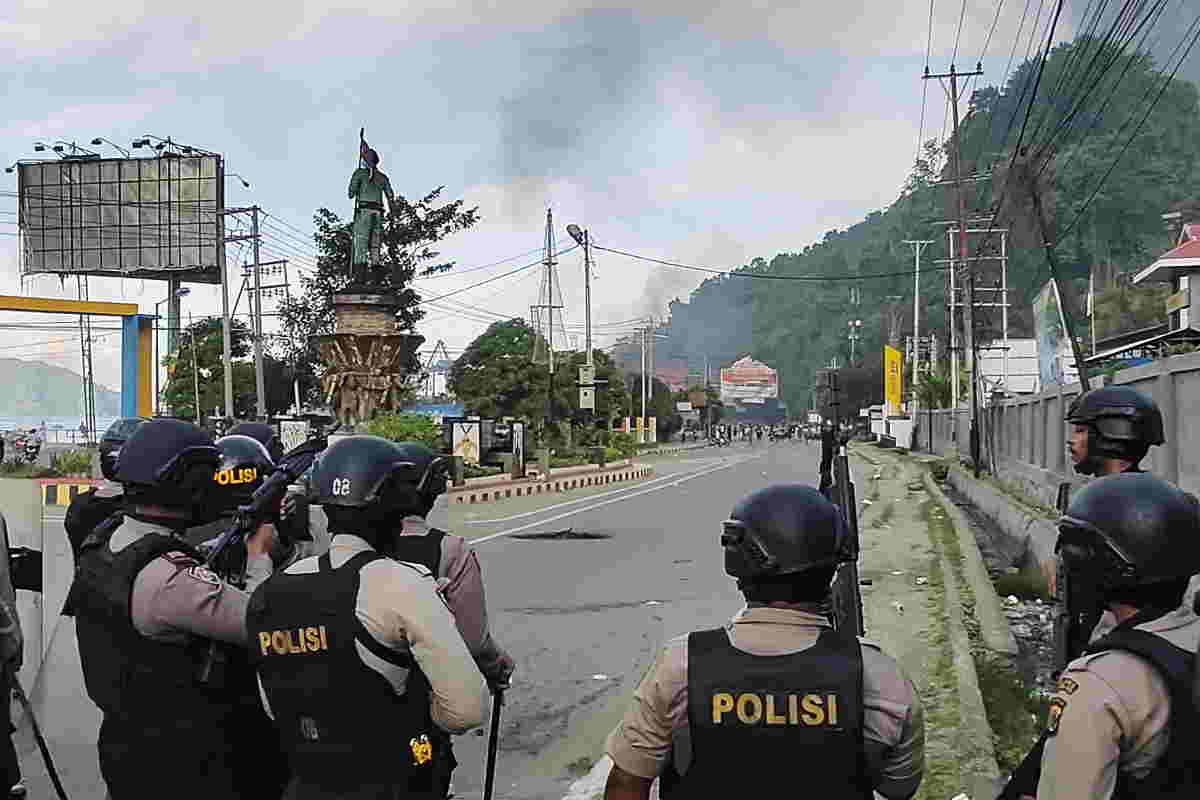Papua has plunged into chaos with deadly riots and mass demonstrations breaking out across Indonesia's easternmost territory, fanned by racial tensions and fresh calls for independence.
Here are five things to know about the unrest:
What started the riots?
The riots appear to have been sparked by the arrest this month of dozens of Papuan students in Indonesia's second-biggest city Surabaya.
Police in riot gear stormed a dormitory to force out students accused of destroying an Indonesian flag, as protesters called them "monkeys" and "dogs".
That tapped resentment among many Papuans who feel they're second-class citizens in Indonesia, which took control of the mineral-rich region – home to the world's biggest gold mine – decades ago.
The majority of Papuans are Christian and ethnic Melanesian and have few cultural ties to the rest of the Muslim-majority country.
Aggravating tensions, Indonesia's security forces have been accused of committing atrocities against civilians during a decades-old rebel insurgency.
How many people have been killed?
An Indonesian government-ordered internet blackout has been in effect since last week, making it difficult to share and verify information.
Things took a fatal turn this week when a clash between protesters and Indonesian security forces left at least one soldier and two demonstrators dead, according to official figures.
There were claims that Indonesia's military gunned down six protesters during the clash in Deiyai, a remote district in the vast region covered in jungles and mountains which shares a border with independent Papua New Guinea.
Authorities denied that they mowed down civilians and said they were attacked by Papuans armed with machetes and traditional bows-and-arrows.
Conflicting reports are common in Papua.
Independence-seeking rebels routinely blame violence on government forces, which in turn accuse the guerrillas of being agitators.
What is the bigger picture?
A low-level insurgency aimed at achieving Papuan independence has been simmering since Indonesia took control of the former Dutch colony in the 1960s after an independence referendum that was widely viewed as a sham.
About 1,000 handpicked Papuans unanimously chose to remain part of Indonesia, allegedly under the threat of violence.
Since then, intermittent clashes have broken out between the powerful military and ragtag, poorly armed rebels fighting for a cause that has gained limited attention internationally.
Late last year the spotlight fell on Papua after rebels massacred a group of employees working for a state-backed contractor that was building bridges and other infrastructure.
The attack at a remote jungle camp sparked a fierce military response which stirred old grievances as tens of thousands of Papuans were displaced by the fighting.
What does Indonesia say?
Indonesia has not deviated from its position that Papua is an integral part of the country – and no one else's business.
It cites the United Nations (UN)-backed referendum as proof its control is legitimate, and has shown no interest in coming to the bargaining table over Papuan independence.
President Joko Widodo has adopted a conciliatory tone recently as he called for peace and pledged to investigate the raid and racist taunts in Surabaya.
Several soldiers have been suspended pending an investigation while two rally organisers were named criminal suspects this week.
The government says it is pouring big money into the underdeveloped region – including an ambitious 4,300-kilometre (2,700-mile) Trans-Papua highway.
What happens next?
In 2017, some 1.8 million Papuans signed an ultimately unsuccessful petition asking the UN to recognise a self-determination vote.
But the push appears to be picking up steam.
Papua's pro-independence movement is organising its many different factions via social media to present a more united front, according to analysts.
And this month, the movement's exiled leader Benny Wenda was at a Pacific nations forum, which called on the UN high commissioner for human rights to probe the deteriorating situation.
But for now, Papua is likely to remain tense.
Any aggression by the military – or violence against its members by separatists – could spark a fresh wave of violence. - AFP
